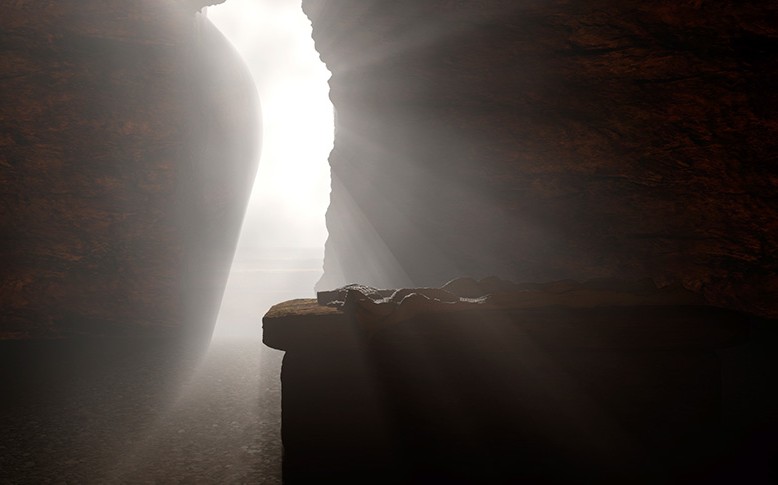Many have postulated that a rivalry exists between faith and reason, philosophy and physics, and the Bible and science. As one could note from previous posts, this writer does not view that such an antagonism exists. Should there be a rivalry between these two entities? Furthermore, should the Christian be afraid of scientific discoveries?
Is There a Rivalry Between Faith and Science?
Some ultra-fundamentalist preachers would have you believe that science is from the Devil while foaming at the mouth and turning fifty shades of red. Unfortunately, some scientists at Space.com, LiveScience.com, and other popular scientists like Lawrence Krauss and Richard Dawkins, would lead one to believe that faith is for those who are fanciful, mentally-challenged, or unable to cope with the challenges of life. The mantra of Karl Marx, “Religion is the opium of the masses” is also the mantra of many secular scientists. No wonder there is so much strife. But, should there really be a dividing line?
Honestly, faith and science are two sides of the same coin. Although scientists seek philosophical meanings to discoveries and theologians present scientific discoveries into their rationale, the science and religious systems answer two very different questions. Science is only equipped to answer the “how” questions. How did the universe begin? How do animals adapt? How do weather patterns develop? Religion and philosophy answer the “why” questions. Why did the universe begin? Why are animals designed to adapt for survival? Why do weather patterns develop or not develop?
In order to complete a full search for truth, one must engage both. Unfortunately, many ministers have given unqualified scientific assumptions without doing the research. Equally unfortunate, many scientists have made huge philosophical blunders by assuming that science shows more than it really does. Does the Higgs Boson disprove God? Of course not! One would expect to find a step that allowed for elements in the universe to have mass since elements in the universe possess mass.
John Lennox and Henry Ford
Dr. John Lennox, a triple-doctorate, professor at Oxford University, scientist, and devoted Christian, said at a conference, “Secularists have stated that they have never found God in the universe. I say, ‘Well of course you haven’t.’ That would be like trying to find Henry Ford in a Ford engine” (John Lennox, “Gunning For God lecture,” National Conference on Christian Apologetics. Central Church of God. Hosted by Southern Evangelical Seminary. Charlotte, NC. October 2012). Lennox brings an outstanding point. Just as Henry Ford is greater and more complex than the Ford engine that he developed, so God is far greater and more complex than the universe that is created. The scientist in all of his/her glory is not equipped to answer theological questions. The same is true for theologians who have not researched science. Lennox is both a theologian and a scientist.
Lennox wrote, “ Physical laws on their own cannot create anything; they are merely a (mathematical) description of what normally happens under certain given conditions. Newton’s law of gravitation does not create gravity; it does not even explain gravity, as Newton himself realized. In fact, the laws of physics are not only incapable of creating anything; they cannot even cause anything to happen” (John Lennox, Gunning For God. Oxford, UK: Lion Books, 2011. pg. 33). So, essentially, science explains the way the universe operates. Scientists are like mechanics seeking to work with a universe already created.
Conclusion
So, is there a problem between science and faith? No, not at all. What about certain popular problems between faith and science?
Evolution vs. Creation
What about evolution vs. creation? Well, I would say that evolution is at a crisis point. It is not the cure-all solution to the atheist’s problem of God. Even if evolution were true, the process would still show the need for intelligence on a grand scale. The process would require a Designer to set it up. A process without a Processor would be like a computer program without a programmer. It is illogical at its core. Evolution would not even negate the influence of a Creator’s hand bringing forth the mutations at certain points…if the theory IS true. Like most things, proponents of Darwinian evolution have swept many of the problems with the theory under the rug. There are glaring holes in the naturalist’s presentation of the evolutionary theory such as the problem of the Cambrian explosion. It seems that if challenges are made, Darwinian advocates are quick to shut-down any opposition. Is this really science? Many Christians have set a line in the sand that they are afraid to examine the issue. But, evolution and a Creator could coincide. The question is whether evolution really IS true; but that is for another article.
Big Bang Theory and Christianity
What about the issue of the Big Bang? Did you know that the theory was developed by a Christian scientist? Lennox writes, “Again it was a theist, not an atheist, who had the idea that led to the current widely accepted Big Bang model of the origin of the universe. George Lemaitre (1894-1966), a Belgian priest and astronomer, challenged the theory of an eternal universe that held sway for centuries, and which even Einstein held at the time (Aristotle’s influence, once more). Lemaitre made a brilliant application of Einstein’s theory of relativity to cosmology, and in 1927 worked out a precursor of Hubble’s Law regarding the fact that the universe is expanding” (Lennox, 29). Is there a discrepancy between science and faith? No, because the Bible declares, “All things through Him (God) came to be, and without Him (God) not one thing came to be which came to be” (John 1:3, The New Greek-English Interlinear: New Testament, J.D. Douglas, editor).
What about M-Theory, Higgs Boson, and recent discoveries?
M-theory posits the existence of a multiverse. This theory is losing ground. However, even if it is true, this would not negate the need for God, for the multiverse would need to have a beginning itself if it is a natural entity. The Higgs Boson (otherwise called the “God Particle”) would be expected. The Higgs Boson in no ways negates the need for God. If a mechanic developed a combustion system for an engine, the discovery of the combustion’s trigger would by no way negate the need for a grand designer of engine.
Nothing that is discovered will ever take away the necessity of God’s existence. God is necessary for the world, the universe, structure, laws, processes, and the like to exist. This does not even enter in the complexities of consciousness, energy, and life. Science and faith coincide hand-in-hand. Unfortunately, combative scientists and combative Christians have promoted a war that should not exist. In the end, we all lose if we choose one over the other. For the scientist who strays from religion and philosophy, there is a loss of logic, hope, and love (not to mention eternal ramifications). For the faithful who strays from science, there is a loss of reason, progress, and discovery. So, should believers worry about anything found by science? Absolutely not. Scientists are simply finding what God knew from the beginning.
Blessings,
Pastor Brian Chilton






[…] Should Believers Worry About Anything Found By Science?. […]